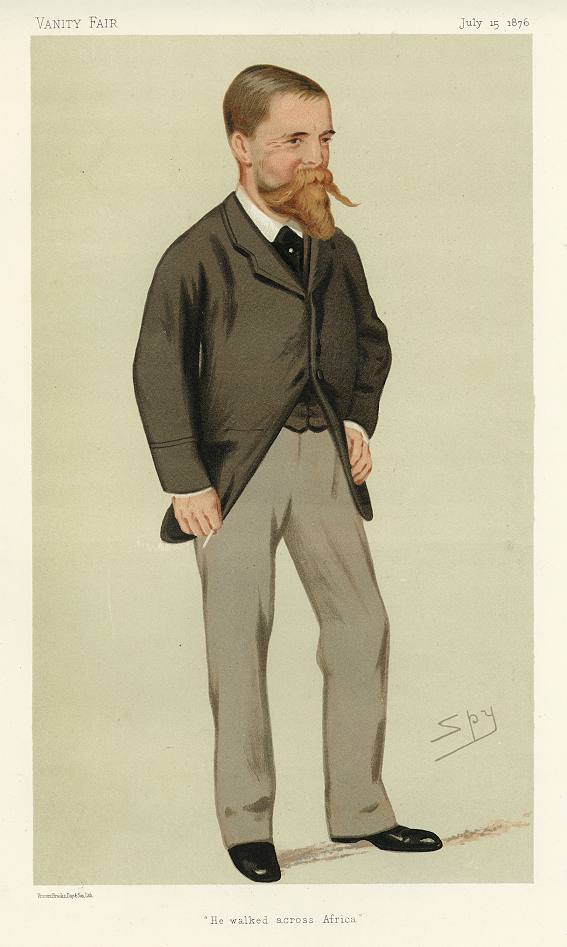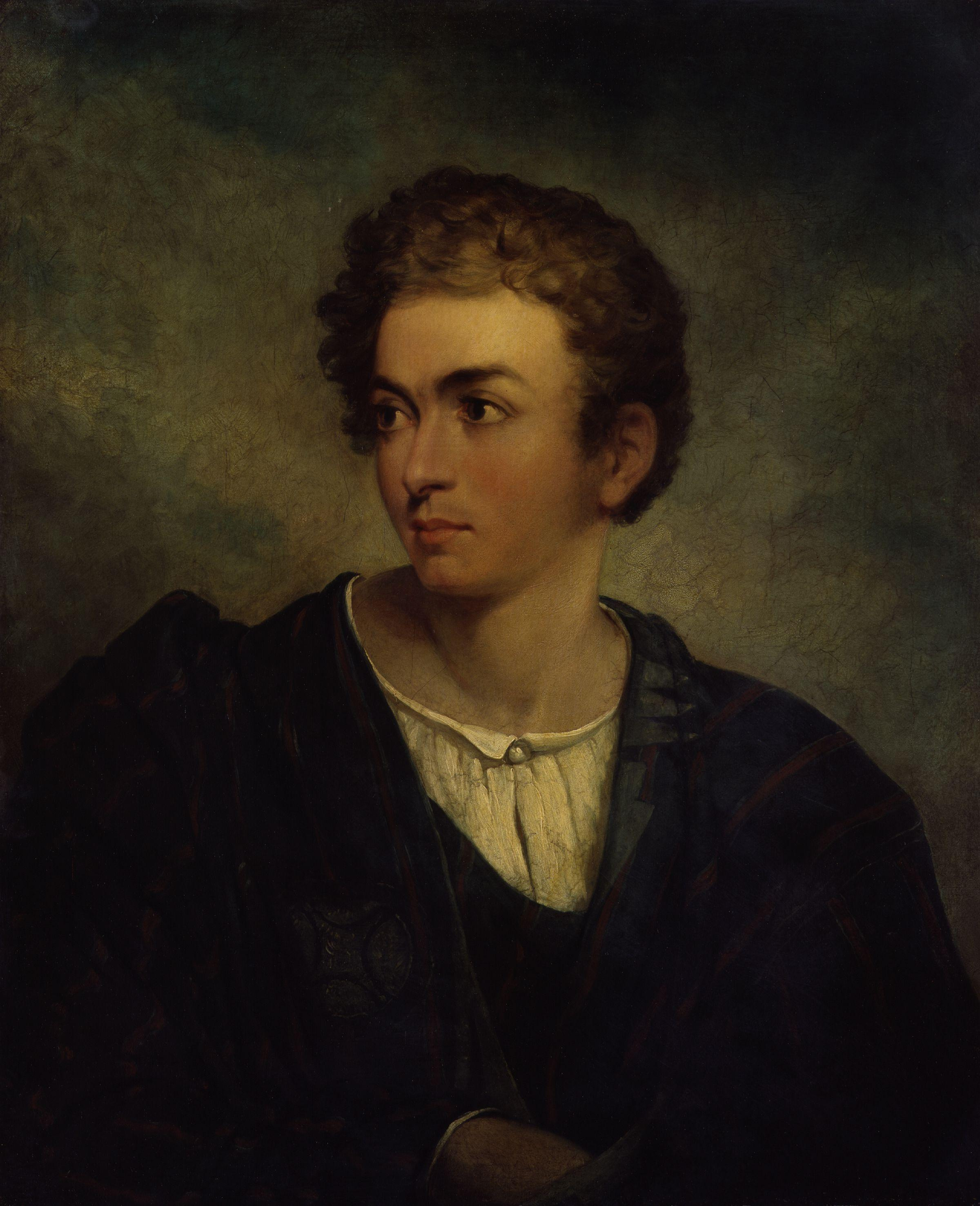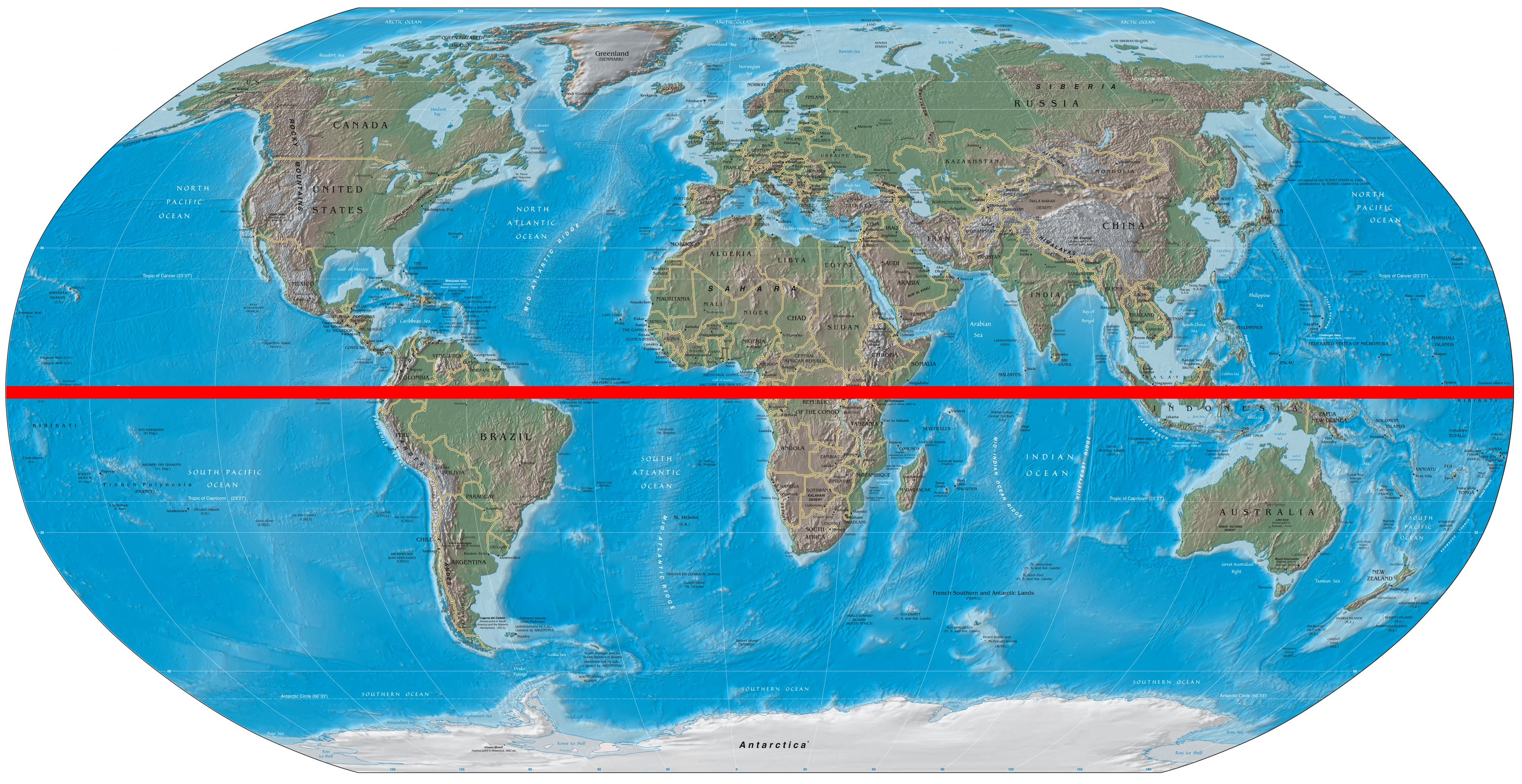|
Verney Lovett Cameron
Verney Lovett Cameron (1 July 184424 March 1894) was an English traveller in Central Africa and the first European to cross (1875) equatorial Africa from sea to sea. Biography He was born at Radipole, near Weymouth, Dorset, son of Rev Jonathan Lovett Cameron and Frances Sapte. He entered the Royal Navy in 1857, served in the Abyssinian campaign of 1868, and was employed for a considerable time in the suppression of the East African slave trade. The experience thus obtained led to his being selected to command an expedition sent by the Royal Geographical Society in 1873, to assist Dr Livingstone. He was also instructed to make independent explorations, guided by Livingstone's advice. Soon after the departure of the expedition from Zanzibar, a caravan of about 80 led by Chuma and Susi were met bearing the dead body of the reverend doctor. Cameron's two European companions, Dr William Edward Dillon, surgeon in the Royal Navy, and Lieutenant Cecil Murphy of the Royal Artill ... [...More Info...] [...Related Items...] OR: [Wikipedia] [Google] [Baidu] |
Verney Lovett Cameron Vanity Fair 15 July 1876
Verney may refer to: People *Verney family *Luís António Verney, Portuguese philosopher, theologian, and pedagogue *Anne-Charlotte Verney, French racing and rally driver *Russ Verney, American political advisor Places *Beth-Eden, also known as Verney, a heritage-listed house in Brisbane, Queensland, Australia * Verney Junction, a hamlet in Buckinghamshire, England *Verney Junction railway station, a disused railway station in Buckinghamshire, England * Verney Lake, a lake in Aosta Valley, Italy * Lac du Verney, a lake in Isère, France Business * Verney-Carron, a French weapon manufacturer See also * Vernay (other) Vernay may refer to: People * Arthur Stannard Vernay (1877–1960), US antique collector, hunter and explorer * Jean-Karl Vernay (born 1987), French racing driver * Robert Vernay (1907–1979), French screenwriter Places * Vernay, Rhône Ve ... * Verny (other) {{disambiguation, surname ... [...More Info...] [...Related Items...] OR: [Wikipedia] [Google] [Baidu] |
Lukuga River
The Lukuga River () is a tributary of the Lualaba River in the Democratic Republic of the Congo (DRC) that drains Lake Tanganyika. It is unusual in that its flow varies not just seasonally but also due to longer term climate fluctuations. Location The Lukuga runs along the northern edge of the Katanga Plateau. The river leaves Lake Tanganyika at Kalemie and flows through a gap in the highlands westward through Tanganyika Province to join the Lualaba between Kabalo and Kongolo. Typically the river accounts for 18% of water loss from the lake, with the rest being due to evaporation. The Lukuga is heavily mineralized. The proportions of ionic contents where the Lukuga River leaves the lake, with magnesium and potassium more prevalent than calcium and sodium, are caused by the Albertine Rift's hydrothermal inputs, as seen also at the outlets of Lake Kivu and Lake Edward. It seems likely that the present hydrological system was established quite recently when the still-active Vi ... [...More Info...] [...Related Items...] OR: [Wikipedia] [Google] [Baidu] |
Verney Lovett Cameron 1878
Verney may refer to: People *Verney family *Luís António Verney, Portuguese philosopher, theologian, and pedagogue * Anne-Charlotte Verney, French racing and rally driver * Russ Verney, American political advisor Places * Beth-Eden, also known as Verney, a heritage-listed house in Brisbane, Queensland, Australia * Verney Junction, a hamlet in Buckinghamshire, England *Verney Junction railway station Verney Junction railway station was an isolated railway station at a four-way railway junction in Buckinghamshire, open from 1868 to 1968; a junction existed at the site without a station from 1851. The first line to open on the site was the ..., a disused railway station in Buckinghamshire, England * Verney Lake, a lake in Aosta Valley, Italy * Lac du Verney, a lake in Isère, France Business * Verney-Carron, a French weapon manufacturer See also * Vernay (other) * Verny (other) {{disambiguation, surname ... [...More Info...] [...Related Items...] OR: [Wikipedia] [Google] [Baidu] |
Commander
Commander (commonly abbreviated as Cmdr.) is a common naval officer rank as well as a job title in many army, armies. Commander is also used as a rank or title in other formal organizations, including several police forces. In several countries, this naval rank is termed as a frigate captain. Commander is also a generic term for an officer commanding any armed forces unit, such as "platoon leader, platoon commander", "brigade commander" and "Squadron (army), squadron commander". In the police, terms such as "borough commander" and "incident commander" are used. Commander as a naval and air force rank Commander is a rank used primarily in Navy, navies, and is very rarely used as a rank in army, armies. In most armies, the term "commander" is used as a job title. For example, in the US Army, an officer with the rank of captain (armed forces), captain (Ranks and insignia of NATO, NATO rank code OF-2) may hold the title of "company (military unit), company commander (United Stat ... [...More Info...] [...Related Items...] OR: [Wikipedia] [Google] [Baidu] |
Cape To Cairo Road
A cape is a clothing accessory or a sleeveless outer garment of any length that hangs loosely and connects either at the neck or shoulders. They usually cover the back, shoulders, and arms. They come in a variety of styles and have been used throughout history for many different reasons. Semantic distinction In fashion, the word "cape" usually refers to a shorter garment and "cloak" to a full-length version of the different types of garment, though the two terms are sometimes used synonymously for full-length coverings. A shoulder cape is thus sometimes called a "capelet". The fashion cape does not cover the front to any appreciable degree. In raingear, a cape is usually a long and roomy protective garment worn to keep one dry in the rain. History The first known usage of capes is unknown, but some early references we know of are from Ancient Roman military uniforms. Later on, capes were common in medieval Europe, especially when combined with a hood in the chaperon. They ... [...More Info...] [...Related Items...] OR: [Wikipedia] [Google] [Baidu] |
Across Africa , a short name of Accrington and Rossendale College
{{disambiguation ...
Across may refer to: Technology and engineering * Across Language Server, a software platform * ACROSS Project, an R&D project in social robotics * Suzuki Across (motorcycle), a motorcycle manufactured by Suzuki * Suzuki Across (crossover), an automobile based on the Toyota RAV4 Arts and entertainment * Across Entertainment, a Japanese voice-acting agency * Across, a musical project of American rapper Lil Ugly Mane * ''Across'', a 2014 EP by Kilo Kish * ACROSS, a fictional secret organization which is the subject of the manga and anime series ''Excel Saga'' See also * Accross Accrington and Rossendale College is a further education college based in Accrington, Lancashire, England. The College Accrington & Rossendale College ('Across') is a further education college that specializes in vocational education. Offeri ... [...More Info...] [...Related Items...] OR: [Wikipedia] [Google] [Baidu] |
Founder's Medal
The Founder's Medal is a medal awarded annually by the Royal Geographical Society, upon approval of the Sovereign of the United Kingdom, to individuals for "the encouragement and promotion of geographical science and discovery". Foundation From its foundation, the society received an annual grant from the Sovereign of the United Kingdom for awards with royal approval. The medal originated from an annual donation starting in 1831 of 50 guineas from King William IV. The award was instituted as the Royal Premium or Royal Award, an annual cash prize. In 1836, the society with agreement from King William IV, decided to allocate half of the premium to a 'Gold Medal'. This would be awarded by the Sovereign, on the advice of the Council of the Royal Geographical Society. Queen Victoria succeeded to the throne before the first gold medal, which was designed in coordination with King William IV, was awarded. Queen Victoria announced her intention of continuing the grant commenced by her un ... [...More Info...] [...Related Items...] OR: [Wikipedia] [Google] [Baidu] |
Equatorial Africa
Equatorial Africa is an ambiguous term that sometimes is used to refer to the equatorial region of sub-Saharan Africa traversed by the Equator, more broadly to tropical Africa, or in a biological and geo-environmental sense to the intra-tropical African rainforest region. See also * Central Africa * French Equatorial Africa * Sahara * Sahel * Sudan (region) * Tropics The tropics are the regions of Earth surrounding the equator, where the sun may shine directly overhead. This contrasts with the temperate or polar regions of Earth, where the Sun can never be directly overhead. This is because of Earth's ax ... References External links * * {{cite web, title=Africa - Equatorial Africa Deposition Network (EADN) Project, url=http://documents.worldbank.org/curated/en/2006/01/7245100/africa-equatorial-africa-deposition-network-eadn-project#, publisher=The World Bank Group, access-date=12 August 2015, language=en, format=pdf Central Africa Geography of Africa ... [...More Info...] [...Related Items...] OR: [Wikipedia] [Google] [Baidu] |
Viye
Viye (also known as Bié, Bieno, or Bihe) was one of the traditional Ovimbundu kingdoms, located in the central plateau of Angola. Its capital city was Ecovongo. During the 18th and 19th centuries, the kingdom was an important crossroads through which Central African and Southern African trade flowed. Characteristics Viye was originally an independent kingdom, later becoming a Portuguese vassal. The kingdom was led by a king, who had an assortment of nobles subordinate to him. The kings of Viye, particularly in the late 1700s and early 1800s, contested with their nobility in a mutual effort to gain supremacy. In 1797, Portuguese trader João Nepomucena Correia described that the kings of Viye had a group of wholly dependent servants (known as mocotas), drawn from the slaves held by his predecessors, among others. The slaves were mostly derived from debtors and could not be sold. These servants served as ministers and war leaders (known as Quisongos). In the mid-19th century, Hun ... [...More Info...] [...Related Items...] OR: [Wikipedia] [Google] [Baidu] |
Zambezi
The Zambezi (also spelled Zambeze and Zambesi) is the fourth-longest river in Africa, the longest east-flowing river in Africa and the largest flowing into the Indian Ocean from Africa. Its drainage basin covers , slightly less than half of the Nile's. The river rises in Zambia and flows through eastern Angola, along the north-eastern border of Namibia and the northern border of Botswana, then along the border between Zambia and Zimbabwe to Mozambique, where it crosses the country to empty into the Indian Ocean. The Zambezi's most noted feature is Victoria Falls. Its other falls include the Chavuma Falls at the border between Zambia and Angola and Ngonye Falls near Sioma in western Zambia. The two main sources of hydroelectric power on the river are the Kariba Dam, which provides power to Zambia and Zimbabwe, and the Cahora Bassa Dam in Mozambique, which provides power to Mozambique and South Africa. Additionally, two smaller power stations are along the Zambezi River i ... [...More Info...] [...Related Items...] OR: [Wikipedia] [Google] [Baidu] |
Slavery
Slavery is the ownership of a person as property, especially in regards to their labour. Slavery typically involves compulsory work, with the slave's location of work and residence dictated by the party that holds them in bondage. Enslavement is the placement of a person into slavery, and the person is called a slave or an enslaved person (see ). Many historical cases of enslavement occurred as a result of breaking the law, becoming indebted, suffering a military defeat, or exploitation for cheaper labor; other forms of slavery were instituted along demographic lines such as race or sex. Slaves would be kept in bondage for life, or for a fixed period of time after which they would be granted freedom. Although slavery is usually involuntary and involves coercion, there are also cases where people voluntarily enter into slavery to pay a debt or earn money due to poverty. In the course of human history, slavery was a typical feature of civilization, and existed in most socie ... [...More Info...] [...Related Items...] OR: [Wikipedia] [Google] [Baidu] |
Congo River
The Congo River, formerly also known as the Zaire River, is the second-longest river in Africa, shorter only than the Nile, as well as the third-largest river in the world list of rivers by discharge, by discharge volume, following the Amazon River, Amazon and Ganges rivers. It is the world's deepest recorded river, with measured depths of around . The Congo–Lualaba River, Lualaba–Luvua River, Luvua–Luapula River, Luapula–Chambeshi River system has an overall length of , which makes it the world's ninth-List of rivers by length, longest river. The Chambeshi is a tributary of the Lualaba River, and ''Lualaba'' is the name of the Congo River upstream of Boyoma Falls, extending for . Measured along with the Lualaba, the main tributary, the Congo River has a total length of . It is the only major river to cross the equator twice. The Congo Basin has a total area of about , or 13% of the entire African landmass. Name The name ''Congo/Kongo'' originates from the Kingdom of Ko ... [...More Info...] [...Related Items...] OR: [Wikipedia] [Google] [Baidu] |




